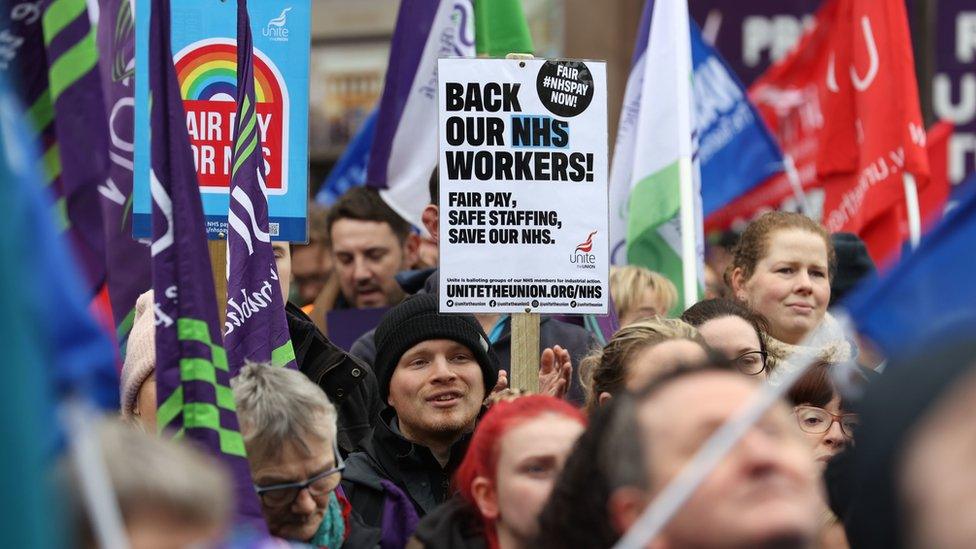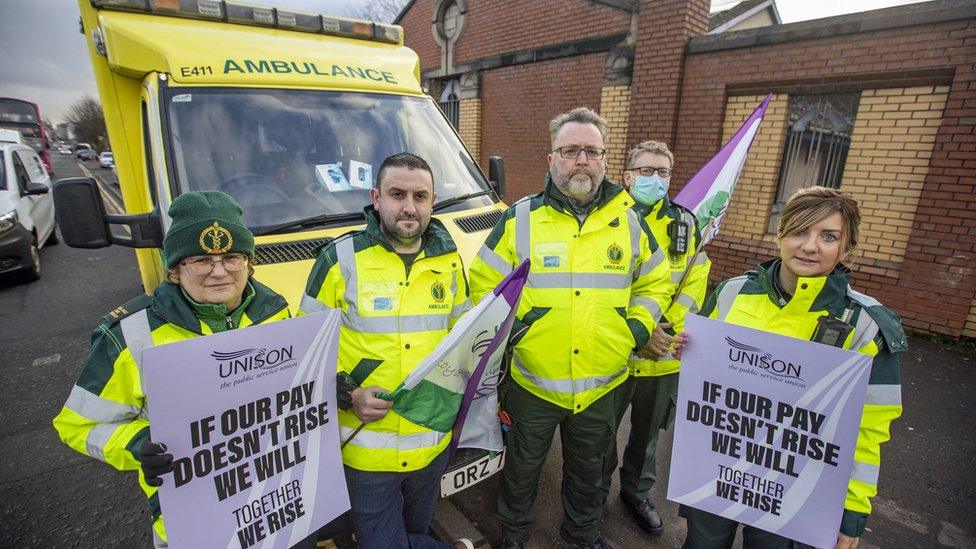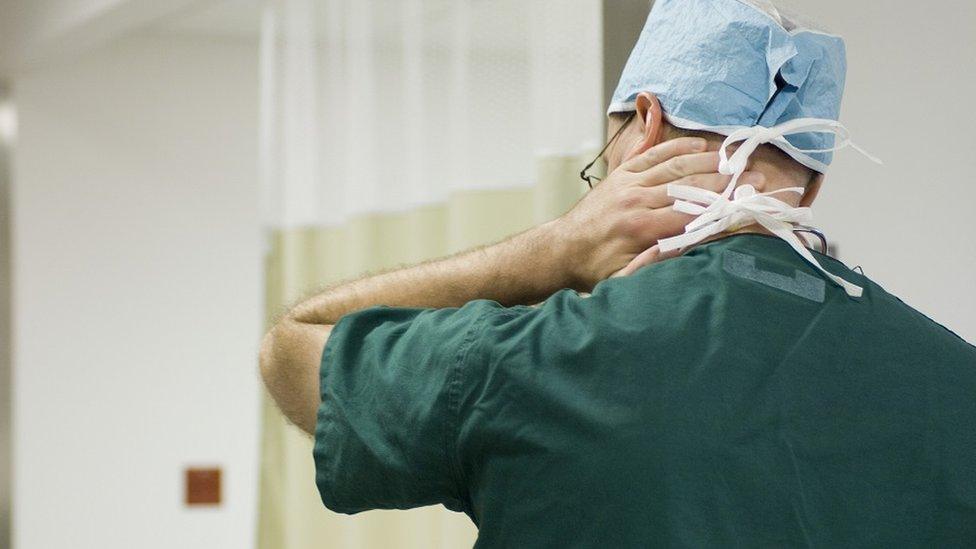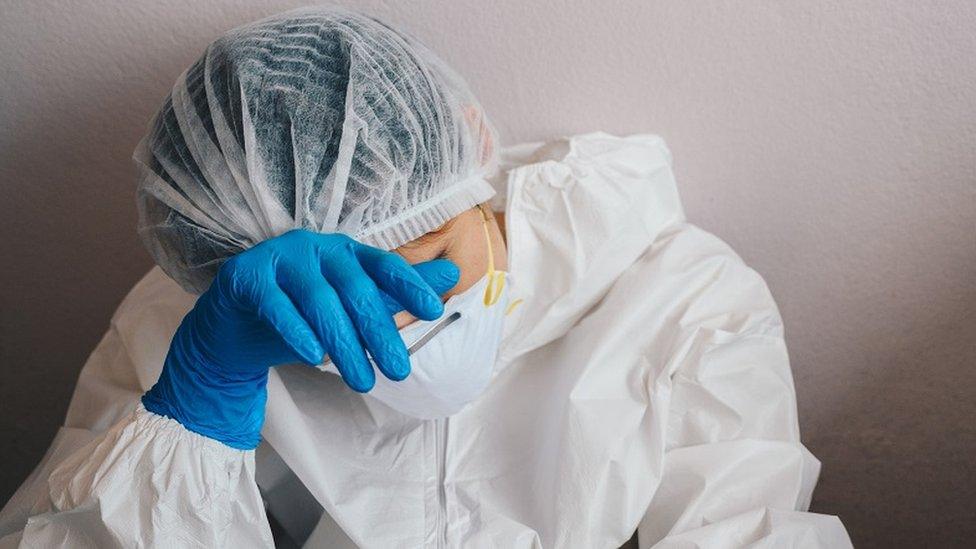No money for health worker pay rises in NI, say officials
- Published
- comments

Health workers took to picket lines on Tuesday amid a long-running dispute about pay
There is no money for pay rises in the Northern Ireland health service in the new financial year, the Department of Health has said.
It said pay rises could only be afforded if there was additional government funding or cuts to services.
The details are contained in a response to the NHS pay review body which is looking at pay policy for 2023-24.
Health service staff in Northern Ireland are already taking industrial action over their 2022-23 pay offer.
That offer was an increase of £1,400, which is worth about 9% for the lowest earners and 4% for middle earners.
A separate recommendation for doctors and dentists was for a 4.5% increase.
The main UK rate of inflation in January was 10.1% but is expected to fall over the course of this year.
The department's submission sets out a difficult budgetary background, saying it had "a fighting chance of breaking even" this financial year only because actions had already been taken to bear down on costs.

Paramedics are among those who have taken to pickets lines as part of their campaign for better pay
It continued: "There will be no capacity to afford a pay uplift in 2023-24 in this context without implementing corresponding cuts to expenditure on services or additional funding being made available in-year.
"The department will need to manage our ongoing response to Covid against this financial backdrop and will continue to focus on efficiency and savings measures but are likely to be faced with difficult decisions.
"The high proportion of health expenditure accounted for by pay (around 50%) means that trends in pay costs continue to have significant implications for spending on service delivery."
Evidence gathered from Northern Ireland's health trusts point to continuing difficulties with staff recruitment and retention.
The Belfast Health Trust, which is the biggest, said it was continuing to experience "significant shortages across all professional groupings including nursing, social work and social care".
The Western Health Trust said it had seen a "marked decline" for applications for estates staff, which includes jobs like electricians, due to "increasing rates of pay" in the private sector.
In social work, the trust said that newly qualified and qualified staff were being attracted by higher pay bands offered across the border by the Republic of Ireland's Child and Family Agency.
Health and public service unions Unite, Unison, Nipsa and GMB staged further action in a pay dispute on Tuesday, with nurses, ambulance and hospital staff have been taking to picket lines.
In a statement, the Department of Health said its submission to the NHS Pay Review Body reflected the financial realities and uncertainties as of the beginning of this year.
The financial situation is of "major concern" and is "likely to require difficult decisions in a range of areas" it said.
Detailed work is ongoing ahead of a budget being set for 2023/24 and clarity about the impact of any pay settlement in England on the Department of Health budget, it added.
The department said it remained committed to ensuring HSC workers are fairly remunerated.
Related topics
- Published6 January 2023

- Published6 January 2023

- Published5 January 2023
